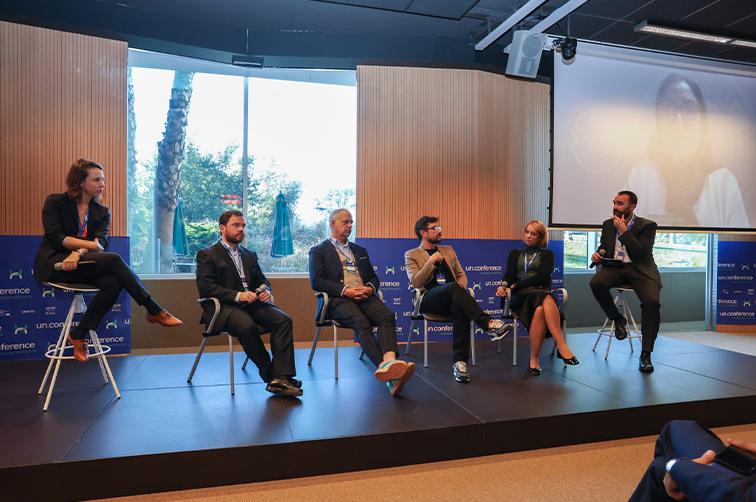
The need for a regulatory framework that guarantees fundamental aspects such as safety, privacy and ethics in the use of artificial intelligence in healthcare was one of the main themes of UnConference 2024, a day of debate and dialogue organised by CATALONIA. HEALTH, a benchmark organisation in the innovative, business and investment ecosystem of the health and life sciences sector in Catalonia.
Under the title ‘Embracing medical AI’, the sixth edition of this annual event brought together this morning at the Grifols headquarters, international experts from the sector, who shared their experience and knowledge about the present and future of artificial intelligence in the healthcare field.
Javier Selva, CEO of CATALONIA.HEALTH, highlighted the importance of the conference's theme, stating that "artificial intelligence is arriving in the field of health, especially in the field of diagnosis and preventive medicine, and will soon be in the field of care. For this reason, it is key to be able to create spaces for work and collaboration between all stakeholders to share knowledge and promote these innovations’.
UnConference 2024 opened with the round table ‘Obstacles and facilitators for the adoption of AI in Europe’, moderated by Javier Selva, CEO of CATALONIA.HEALTH, and Izabel Alfany, Managing Director at EIT Health Spain. The session included the participation of Yamelis Figueredo, Chief Digital Information Officer at Grifols; Josh Callan, Head of Spain, Commercial Solutions & Strategy at Veeva Systems; Enrique Lizaso, CEO of Multiverse Computing and member of the governing council of the European QuIC; Julien Venne, Director of New Opportunities & Business Development at EIT Health; and Alexandra Prieux, CEO of Alcediag, who stressed that we need to work to reduce resistance to the adoption of new technologies among end users, both clinicians and patients. There was also consensus on the need for a regulatory framework that guarantees ethics and avoids bias, but it must be flexible and adapt to the pace of innovation. Furthermore, they emphasised the need both to ensure the quality, accessibility and interoperability of data, and to be able to train and retain specialised talent in order to address the European talent gap and improve the attractiveness of the sector to other markets.
Afterwards, three parallel sessions were held: What are the technological challenges of AI applied to healthcare? on whether AI is innovation or transformation policy in companies, and how it encourages a cultural change towards collaboration; and What are the regulatory obstacles to the application of AI in health care? the participants discussed the major challenge of data collection; and on How to improve the adoption of AI among healthcare providers? the participants addressed the different ways in which AI impacts and is adopted depending on each sector.
The event also included the Keynote ‘Ethics in AI in the health sector’ by Cristina Bescos, CGO and Director of Innovation at EIT Health, who reflected on the basic ethical principles in artificial intelligence and innovation that she has learned during her career, providing multiple ideas for reflection to the attendees.
To close the day, there was the virtual participation of Gabriela Ramos, Deputy Director General for Social and Human Sciences at UNESCO, who underlined the value of these spaces for debate, providing conclusions in a global vision.
This event has been realised with the support of ACCIÓ.
Comments